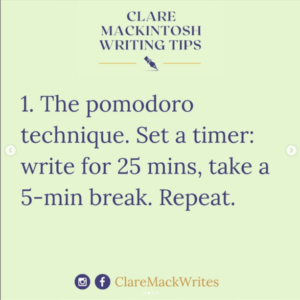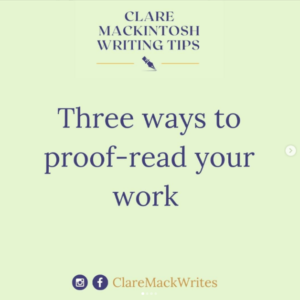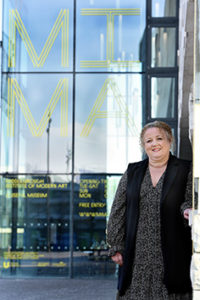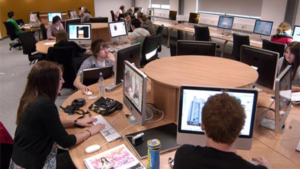By Angela Lawrence, Associate Dean, School of Arts and Creative Industries, Teesside University
As university assessment submission deadlines approach and students are challenged with finding time and headspace to write, here are some tips to help you to make best use of your time to produce a quality piece of written work, and hopefully get the highest mark possible.
Disruption everywhere
Increasingly our lives are being challenged with the disruption of technology. Television is no longer limited to the living room but pervades every corner of our homes on streaming devices and there is no end to the choice of content to distract us from sitting down and writing. When I say writing of course I mean typing – the principle is the same, we are putting words onto a document, transferring thoughts from our minds into the written word. Therein lies the challenge – how can we do this when we are surrounded by the continuous distraction of Sky, Netflix, Spotify, Instagram, Twitter, Facebook and the like?
Space to write
Personally, my best writing is done when I take myself away from home. Three or four times a year I indulge in a 3-day writing retreat. This has been instrumental in ensuring that I manage to complete the professional Doctorate in Education that I am now just months away from completing after over four years of study. In those three writing retreat days I indulge in 3 or 4 blocks of writing per day, ranging from one-and-a-half to two-and-a-half hours of time per block. Whilst in our writing rooms there is no internet access and phones are not allowed, so there is no distraction. We are asked to write in silence, so that we don’t disturb others that share the writing room with us. We set goals for each day of writing. The writing blocks are interspersed with breaks during which we eat healthy, nutritious food and take walks in the fresh air where we discuss progress towards the goals that we have set ourselves. It may not be for everyone, but it absolutely works for me. Each time I return from a writing retreat I tell myself that I could just do this at home, but the reality is that without someone monitoring and enforcing the writing blocks, inevitably the structured approach breaks down.
Love of Libraries
I often take myself to the library to write, even if just for 3 or 4 hours – I love libraries. I find that in a library I am able to focus, purely because I am away from the comfort of my home. For me though, I must commit to being in a writing space for at least 3 hours, an hour here or there doesn’t work – it doesn’t give me enough time to get my thoughts “into the writing zone” and to find my focus. Every now and then I arrange to meet at the library with a friend who also wants to do some focused writing. We meet, share a coffee, then agree a time to sit quietly and write, uninterrupted for a period of time, with phones on silent and in our bags. We agree a time to stop for our next break and chat.
An author’s tips
One of my favourite authors is Clare Mackintosh, a former police officer who left the force in 2011 to write full-time. Her first novel, I Let You Go (2014) was an immediate best seller and is still one of my favourite books. Clare is just a normal working mum, and she often shares her tips for writing on her social accounts @claremackwrites. With her permission (thank you Clare), I’d like to share a few of these, because it’s likely that one or more of these will work for you
Keeping focused

These are Clare’s three ways to maintain focus when you write
1.The pomodoro technique. Set a timer: write for 25 mins, take a 5-min break. Repeat
2.Buddy up with someone. See how many words you can each write in the agreed time
3.Switch off the internet! Rewards yourself with Twitter/Rightmove/Wordle once you’ve written
I have tried all these methods and yes, they work for me. By far the most important one in my opinion, is number 3 – it’s quite simple, just don’t run the risk of social media downgrading your degree!
Accuracy
Having dedicated time to complete your assessment, you owe it to yourself to make sure that your work is presented in its best format. When marking student assessments, I continually get frustrated when the good work that they have done is let down by sloppy spelling and grammar. My frustration is compounded when students haven’t performed even the simplest of spelling checks offered by the software that we use.
Clare offers three intriguing ways to proof-read your work

1.Change the font – it helps you see the document with fresh eyes
2.Print it out. Extra wide margins are useful for making corrections
3.Read backwards, one page at a time. This helps you read slowly and carefully, without getting engrossed in the story
My favourite here is number 1 and it’s surprising how you see things quite differently by just changing the font style that you write in – give it a go!
Time and tide wait for no man
The poet Geoffrey Chaucer is quoted as saying “time and tide wait for no man” and this brings me to my final point. Don’t miss your deadline! Give yourself time to complete your best piece of work. Work backwards from the hand in deadline and identify chunks of time that you can devote firstly to your research, and then to your writing. I block out days that I will focus on researching and writing months ahead, I book writing retreats six months ahead and I always devote at least one day of every one-week-holiday to either reading or writing.
Be disciplined about it. It’s tough, I know, but the reward comes when you receive your best mark possible and then you, and only you, KNOW that YOU deserve it!
——————————————

Angela Lawrence is an Associate Dean in the School of Arts and Creative Industries at Teesside University.



